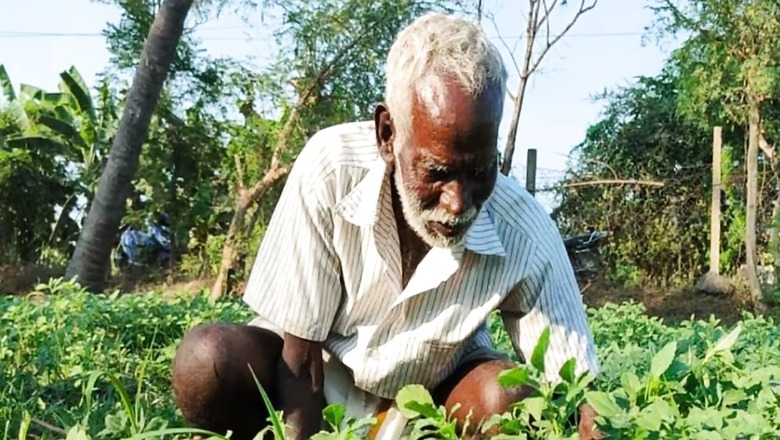
views
Many politicians and public intellectuals claim that industrialists have been given debt relief to the tune of Rs 15 lakh crore in the last 10 years, so farmers’ loans should be waived off. Let’s examine the truth of this assertion and the genuineness of the demand.
The fact is that there has never been a blanket waiver of industrialists’ loans; in fact, there has not even been such a demand. If such a demand is made, it too would be as immoral and irrational as the one for farm debt write-off for a number of reasons.
First, when I take a loan from someone or some organization, it is my duty to repay it. Why on earth should I expect a waiver? On what pretext? If my loan is forgiven, why shouldn’t it be that of others? If all loans are abolished, there would be no banks, no credit? Is it possible for industry, business—indeed the human civilisation as we know it—would survive?
This brings us to the second reason. It has been argued by the self-appointed champions of farmers that the debts of businesspersons are often written off. That’s not correct, for it is part of debt restructuring. This is done in the case of failed businesses and companies. Many factors can be responsible for the failure of a company, ranging from external conditions and unforeseeable happenings to incompetence and deceit on the part of promoters. There have been cases of businesspersons landing up in jail because of fraudulence and malfeasance.
It is true that the corporate insolvency resolution process or CIRP under the Insolvency & Banking Code is not perfect. According to a report, the State Bank of India could recover just 21 per cent of bad debt in the five years after 2017-18. But that doesn’t mean that we should abandon debt restructuring. Just because debt recovery is not perfect in the case of the industry doesn’t mean that loans should be waived off in the farm sector.
The third reason why the demand for a government-sponsored loan waiver is wrong is that such a decision will burden all of us, for government money is ultimately taxpayer money.
The fourth reason is that the demand is bad because it would incentivize bad behaviour. If I know that my neighbour can get away without loan repayment, I will do the same.
Fifth, loan forgiveness will deter lenders, both private and public, from loan disbursal to farmers. This will be disastrous for a sector which is hugely stressed.
Insanity, they say, is doing the same thing over and over again, and expecting different results. Unfortunately, it is entrenched in our political discourse. This is not the first time that this demand has been raised—nor, unfortunately, would it be the last one.
The Central government wrote off farm loans only twice since Independence. The V.P. Singh-led National Front government, supported from the outside by the Bharatiya Janata Party and the Left, did that for the first time in its 1990-91 Budget. The then finance minister Madhu Dandavate justified the move, saying, “Over the years, poor farmers, artisans and weavers have accumulated debt which they are unable to repay. They have been caught up in a vicious circle of indebtedness and low incomes, which keeps them in perennial poverty. In order to relieve our farmers from the burden of debt, an assurance was given in the National Front’s manifesto that relief will be provided to farmers with loans up to Rs 10,000.”
The Congress, which was the main Opposition party, slammed the scheme. And yet, it was the Congress government under Manmohan Singh which came up with a second waiver in its 2008-09 Budget. It gave full waiver to small and marginal farmers, whereas offered relief up to Rs 25,000 or a 25 per cent waiver, whichever was lower, to other farmers.
While the first waiver cost the exchequer Rs 7,825 crore, the second one resulted in a burden of over Rs 52,000 crore.
This is apart from the farm debt forgiveness by many state governments, the total amount spent running into lakhs of crores. Besides, there are other measures that the Central and state governments adopt to help farmers, ranging from the MSP to cheaper loans, subsidized fertilizers, and free or low-priced electricity.
All this results in a lot of pain for the taxpayer, but does it benefit the farmer? Doesn’t seem so, for, agriculture remains a laggard, employing half of the workforce but contributing less than one-fifth of the GDP.
The reason is that farm policy, being statist, is essentially rotten. What the sector needs is a paradigm shift in policy, but the vested interests are so entrenched that they successfully oppose any meaningful change. The three farm laws of 2020 were the harbingers, but the Modi government was forced to withdraw them.
The same people whose discredited policies have been the bane of agriculture try to peddle farm loan waivers. Hopefully, their drivel will not be heeded.
The author is a freelance journalist. Views expressed in the above piece are personal and solely that of the author. They do not necessarily reflect News18’s views.




















Comments
0 comment